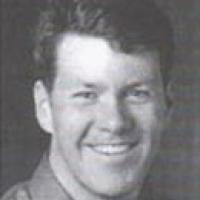Benjamin Foss is an example to all with learning disabilities that success is possible. At age 29, Benjamin is now a graduate student at Stanford University working to earn his Masters of Business Arts (MBA) and a law degree. Prior to that he earned a BA at Wesleyan University and MSc from the University of Edinburgh in Scotland. He also competed for and won the Marshall and Truman Scholarships, and was a national finalist for the Rhodes Scholarship.
In addition, Benjamin has worked on the National Economics Council at the White House for Marian Wright Edelman at the Children’s Defense Fund. He also was the World Masters Debating Champion in 2001, and the British Isles debating champion in 1998.
Many are surprised to learn that Ben was diagnosed with dyslexia early in elementary school and placed in special education classes. There he was able to develop his strengths. His nonverbal, picture-based intelligence was found to be in the superior range. His greatest difficulty was written language.
Ben discovered that his talents were outside of the “traditional” learning setting. A piece of advice he gives to others is to “discover what you do best and play to those strengths.” Part of this process is an ability to “think outside of the box…to not limit strengths by a “box” that may have been designed by someone else”. In order to succeed Ben also has developed strong self-advocacy skills.
After sixth grade, Ben was mainstreamed in school. He did not receive special education services. He struggled. “I spent a lot of years trying to deny my dyslexia,” he said. Once he got to college he realized he needed to really address the issues related to the dyslexia. He sought resources that could help him. These included the on campus writing lab that would help him proof read papers that he had written. He also sought the help of class teaching assistants to make certain that he was moving in the right direction in courses. As his classroom successes grew Ben’s confidence increased.
More confident of his abilities, Ben sought outlets that would really tap his strengths. “One of the most important things is choosing the right domain for yourself,” he states. “I got into debate. The key is to play to your strengths. If you’re good at metalwork, become a sculptor, not an accountant.”
School remains difficult for Ben. The time spent bending over law books that needed to be read resulted in a back injury. Ben reassessed his goals and explored resources at Stanford. He applied for the MBA program – a degree that would enable him to work more in the public sector of business free from the need to continue the excessive reading and writing demands of a full-time career as a lawyer. Today he is also working on the cutting edge of technology helping to make Web sites accessible to screen reading devices.
Ben believes that the greatest hurdle for a student with a learning disability is the emotional toll adjustment to the disability can take. “First you must come to terms with your disability; accept it and embrace it. Then you must deal with a world that sees, and often doesn’t know how to respond to your disability.”
What advice would you give a student with LD?
“LD comes in million different flavors, and anyone, with or without LD, has their own individual strengths.”
Strategies that work
- Discover your strengths and weaknesses. Play to your strengths.
- Be a self-advocate.
- Seek available resources. Is there a tutor who can help, a note-taker, or technology program?
- Find a community of people who have been there before.
This article was written in conjunction with discussion with Benjamin Foss and with reference to an article that appeared in Smart Kids with Learning Disability.
